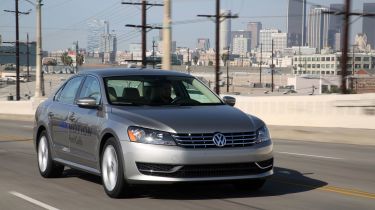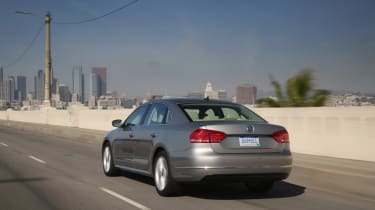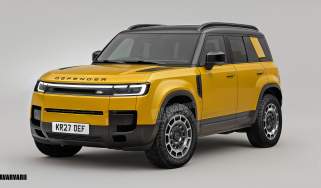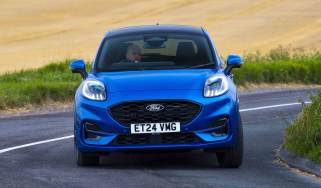Volkswagen Passat HyMotion review
New hydrogen fuel cell tech is showcased in Volkswagen Passat HyMotion concept car - and we've driven it

VW has been researching and developing hydrogen fuel cells since the nineties. The tech and the brand itself have advanced so much, that mass production of these cars could begin almost immediately. Sadly, the world is not yet ready for their arrival, so, right now, there’s no due date.
VW introduced its latest hydrogen-powered car technology at the LA Motor Show - but rather than this impressive new powertrain being confined to life on the show stand, Volkswagen has implemented it into a car that works in the real world. However, it’s what’s beneath the VW Passat bodywork that really matters here.
Sitting on the versatile MQB platform, the VW boasts a 132bhp fuel cell and four hydrogen tanks that provide 310 miles of range and performance that is on par with a diesel-powered Golf. The tanks can be refilled in three minutes and have also been positioned in a way so they don’t encroach on passenger space inside, too.
The Golf’s MQB architecture is so adaptable that it makes it the only vehicle in the world which can adopt every conceivable powertrain. That includes diesel and petrol engines, natural gas, electric drive, plug-in hybrid technology and now hydrogen fuel cell.
But what exactly what does this all mean? Well, when a comprehensive hydrogen refueling infrastructure is eventually put in place, VW will be able to produce hydrogen vehicles immediately. They can be built in the same factory and on the same line as conventionally powered cars, which helps minimise costs.
Although still a prototype, the Passat feels thoroughly well engineered when you get behind the wheel. It whirs into life, and like any other electric car silently pulls away with a surprising amount of urgency. There’s nothing in the cabin that distinguishes the Passat HyMotion from any other traditionally powered version either.
Performance wise, a lithium-ion battery which stores the kinetic energy recovered from regenerative braking provides a boost to maximum acceleration when you need to overtake.
You can feel the added shove, meaning a 0-62mph time of 10 seconds feels quicker than the number suggests.





